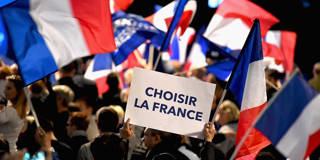Commentators have affixed the “populist” label to the wave of demagogic politics sweeping Europe (and much of the rest of the world). But, beyond the raucous style common to populists, what do these movements share?
LONDON – Emmanuel Macron’s decisive defeat of Marine Le Pen in the French presidential runoff was a major victory for liberal Europe. But it was a battle, not a war. The idea that one in three French citizens would vote for the National Front’s Le Pen was inconceivable only a few years ago.

LONDON – Emmanuel Macron’s decisive defeat of Marine Le Pen in the French presidential runoff was a major victory for liberal Europe. But it was a battle, not a war. The idea that one in three French citizens would vote for the National Front’s Le Pen was inconceivable only a few years ago.